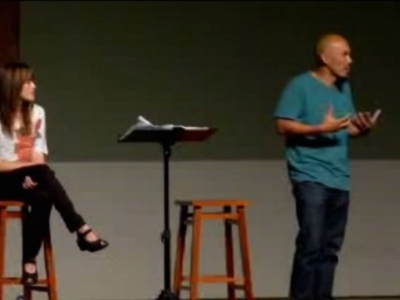
How to be a generous family
Practical ways to build generosity into our lives and families.
I don’t know about you, but I marvel at really generous people.
I love stories of people like the medical missionary, Paul White, who apparently whenever he bought something more than what he needed for survival (what he called ‘a luxury’), would give an equal amount away to missionary work or charity.
I marvel at generous people because the gospel has so clearly gripped their lives that they see the things of this world as gifts to share. I marvel because they understand that Jesus’ story of the Good Samaritan in Luke 10 expands our vision of ‘neighbourliness’.
I marvel at these people while, at the same time, feel gripped by paralysis. Why is it so hard to build generosity into our lives and families? I think there are three obvious reasons.
Why generosity seems hard
Firstly, it all just seems so complex. How do we know that we’re being generous to the ‘right’ people? How can we be most ‘effective’ in our giving? Should charity begin at home or should we help those who are far away and probably in more desperate situations?
Secondly, living in our media-rich, globalised society, the sheer level of need can be overwhelming and we can fall into compassion fatigue. In the midst of another busy week of work/school/ groceries/soccer/dinner/homework/washing, pausing to give serious thought to alleviating the needs we come across can just seem beyond us.
But thirdly, and most insidiously, we are white-anted by guilt. Guilt takes the joy out of service; it takes the love out of charity; and it takes the gospel out of Christian moral action.
The gospel of Jesus—his grace for us; his mercy towards us; the redemption and adoption he offers us—cannot peacefully coexist with guilt. They are warring tribes of thought in our heads and hearts. So, when we’re trying to teach our families about generosity, we can’t use guilt (for example, ‘Eat your dinner … don’t you know that there are starving kids in other countries?’)
We also can’t have pity on others. The Bible doesn’t use the word ‘charity’ for what we call charity. The word it uses comes from the word ‘mercy’. As we reflect on the mercy of God to us, our paternalistic pity for the poor in the world melts away.
We want our families to see generosity through the filter of the gospel. It’s only when we start with Jesus and then work outwards that we can really start to expand our family’s ‘generosity imagination’.
With that in mind then, I want to suggest two areas we’ve found helpful in expanding our family’s generosity imagination—charity to our ‘far’ neighbours and hospitality to our ‘near’ neighbours.
Charity to our ‘far’ neighbours
Take opportunities to lift your children's gaze to specific needs of others. For younger kids, you might explain how some children have never received a present, and go shopping together to fill an Operation Christmas Child shoebox with gifts. For older teenagers, you might sit down with them to find an organisation working to end child trafficking, pray with them about it, and encourage them to think about how your family can help.
But charity to our ‘far’ neighbours is only half the story, and arguably the easier half.
Hospitality to our ‘near’ neighbours
Hospitality means a whole lot more than hosting a dinner party. Hospitality is a whole-of-life thing. Reflect on Jesus’ parable in Luke 14—we see Jesus speaking about God extending the invitation to come into his kingdom beyond ‘nice’ social boundaries. He invites those who society sees as unlovely—the lame, the poor and the blind. How can we reflect God's love and care to all people within our community, school and church?
When you’re talking with your kids about who they’ll invite to their birthday party, encourage them to be generous and hospitable. Are they only inviting the kind of kids who will probably bring them an expensive present? Teach them, as is appropriate to their age, that we don’t just include people in our lives who are going to help us to be upwardly mobile.
As we reflect on Jesus’ generosity to us, this can’t help but compel us and our families to grow in our generosity to others.
For more articles from Growing Faith, subscribe to our monthly e-newsletter.
To hear about the latest books and resources from Youthworks Media, subscribe here.






